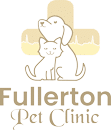A comprehensive dental examination and professional cleaning under general anesthesia is the gold standard for pet dental care. Under anesthesia, our trained veterinary team can thoroughly examine the teeth, gums, and other oral structures to detect any abnormalities or signs of disease. Many dental issues go undetected without a full oral examination under anesthesia.
The Importance of Professional Dental Cleaning Under Anesthesia
Dental Cleaning Process
Our clinic is equipped with state-of-the-art monitoring and diagnostic equipment to enhance the safety and effectiveness of every procedure. We are committed to providing the highest standard of care to protect your pet’s health.

